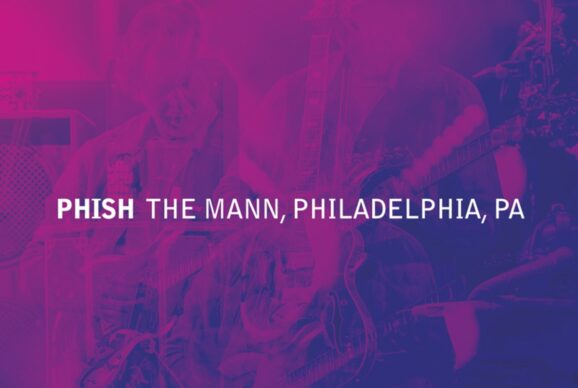The intentionally oxymoronic Electronic Frontier Foundation has issued a 20-page report on illegal file-swapping and peer-to-peer sharing, and the results are exactly as you’d expect. Four years after the RIAA filed its first lawsuits against often unsuspecting individuals, the EFF concludes that you really don’t make friends with salad: “Suing music fans is no answer to the P2P dilemma.”

So if filing 20,000 lawsuits against college kids, grandparents and other societal menaces with no sign of abatement is not the answer, then what is? The EFF advocates a “voluntary collective licensing regime” whereby users pay a monthly fee that allows them to legitimately download and keep any music in the collective.
That’s not a bad plan. Some lawsuits would still be necessary to prevent widespread illegality under the new system, but the targets will likely change. We’re not exactly sure how that would shut down illegal file-sharing once and for all, but it would at least provide a more reasonable outlet for legal downloading.
Here’s our modest proposal: Product Placement, Advertising and Licensing. All music, in all forms, from this point forward will be free or low-cost to the consumer, and the artist will be responsible for financing the albums and growing rich through advertising income, selling the songs to movies and telly, and touring the country. Sure we’ll have to put up with more songs about the Whopper, hip sneakers and cellular telephones, but hey, think how free of guilt you’ll be when Wilco’s new album, Crying With My Sears Craftsman Portable Power Tools, hits the iPod.
- EFF PDF: RIAA v. The People: Four Years Later
- Great Arts Technica blog post on the subject: EFF report slams RIAA lawsuit campaign, calls for flat-fee, unlimited P2P










0 Responses
From this month’s Atlantic, an interesting perspective:
A Victimless Crime?
The recording industry can stop blaming sagging sales and profits on online pirates: They’re cheapskates who probably wouldn’t have bought the albums they downloaded, according to an economic analysis of file-sharing and album sales. The study’s authors focused on the impact of Germany on downloads and sales in the fall of 2002: A sixth of all U.S. downloads are from German sharers, and during German school holidays—when kids are at home, online, and sharing their collections—the supply of pirated music available to U.S. listeners balloons, making downloading quicker and easier for Americans. But the authors found that albums that debuted in the U.S. when German kids were on holiday sold just as well as albums that debuted when German kids were in school. (They estimate the maximum number of album sales lost to piracy each week at no more than 368 copies.) Declining to endorse or condemn music pirates, the authors nevertheless point out that the net effect of piracy seems to be beneficial: The recording industry loses little or no money, and millions of American and German tightwads get their music for free.
—“The Effect of File Sharing on Record Sales,” Felix Oberholzer-Gee and Koleman Strumpf, Journal of Political Economy (PDF)
“the EFF concludes that you really don’t make friends with salad: “Suing music fans is no answer to the P2P dilemma.””
I love that this needs to be said. “Your fans won’t buy your stuff if you keep sueing them”
Personally I think getting rid of DRM is a big step in the right direction. The lack of a single standard for DRM on music is a big problem for a lot of people. I pirate a lot of music that I also buy on iTunes because I want to make discs or share a song with a friend. They probably consider the sharing a part of the problem, but if they like the song they are going to be more willing to buy more from that artist in the future. It works in their interests in the long run to, in the words of Cory Doctrow who is a bit obnoxious on this issue, foster a culture around the music. Let people make compilation discs to share and those same fans who are passionate enough to push the product on their friends will work as the greatest advertisers you can imagine.
My overall solution is packaging. Create unique hardcopy collector’s editions of music. I bought the Icky Thump flashdrives that were shaped like Meg and Jack White. They cost a lot more than the album, but I thought they were worth it because they were interesting. I love getting cool stuff from my favorite artists. Phish always did a great job with their packaging and I always appreciated (and bought for a higher price) the items. It, again, fosters the creation of a culture around the artists and benefits everyone.
Couldn’t agree more, Andrew…Someone like Beck probably sold a lot more albums last time around strictly as a result of the unique packaging.
The DRM point is dead-on as well. I don’t know of any (or many) other products that you can’t share with your friends once you’ve bought it. Couldn’t you imagine if newspapers and magazines just exploded if your friend tried to read ’em? Actually, that could be a funny prank.
It’s sad to me how so many so-called music fans somehow try to legitimize stealing music. It’s wrong. There’s no explaining it away. The modest proposal up above makes clear how little you know about what it takes to have a sustaining career in the music business. I’m not defending the RIAA either. But the bottom line is if music fans continue to justify stealing music, all they’re doing is driving a stake through the prospect of self sustaining musicians and ultimately creative culture in this country. For bands who are perceived as successful like Dr. Dog, My Morning Jacket, Marco Benevento, M. Ward, Jacob Fred Jazz Odyssey, etc., selling music is a huge factor in their survival. There’s something to be said for recording a record in a real studio, having the support of a real record label, being able to tour in conditions somewhat above squalor, and the squeeze that pirated music puts on all of these endevours is crushing to artists. Comparing a newspaper or magazine to a piece of art like an album is inconceivable. Sorry, didn’t mean for this to be a stupid ass lecture, but enough is enough already. Throw down the $10 bucks for the album or 99 cents for the track and know that you’re doing the right thing. There’s a lot at stake here.
Uh, dude? Satire. I thought the phrase “a modest proposal” would be a nice tip-off:
http://en.wikipedia.org/wiki/Modest_Proposal
Great minds run in the same channel!